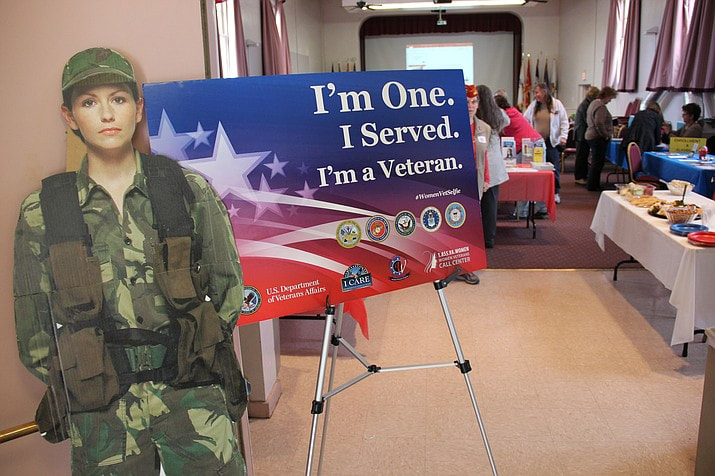The bill that New York Governor Andrew Cuomo signed on Veterans Day is a national first. It extends the eligibility for state benefits to veterans who have received a “less than honorable discharge” because of unfair or discriminatory discharge policies.
“I am ecstatic to hear that that change has finally been implemented,” Mendez says. “For me personally, it’s been a really long journey. I am a veteran and survivor of sexual trauma.”
U.S. Marine Corps veteran Janelle Mendez says she experienced another of the unfair or discriminatory discharge policies — post-traumatic stress disorder.
“Going through that storyline and that struggle, in my case, I didn’t know that I would be reporting sexual violence and then, all of a sudden, I would be coming out homeless, and not even knowing I was getting discharged. And then I go to apply for benefits, and I found out I don’t qualify. So, in my case, it took me two years to get out of homelessness, and it wasn’t until I got a job in finance and when I started working at a bank where I even started making enough money to pull myself out of homelessness, and it took two years to do that,” Mendez says. “And, at the same time, I was dealing with so much trauma from what had happened. So I was going through PTSD, which I did not know I had at the time and I didn’t even know you can get PTSD from sexual violence, and I started to get involved in substance abuse. So I had a really, really hard time when I got out, and I just felt like no one was able to help me, and I felt like I was ignored by everybody that I was going to for help. So this legislation getting changed, to me, is a huge marker in saying, as a community, we’re taking a stand, and we’re saying that enough is enough, and that we’re going to protect those who come next.”
The New York law also extends eligibility for state benefits to veterans who received a “less than honorable” discharge for traumatic brain injury, or their sexual orientation or gender identity under “Don’t Ask, Don’t Tell.” Assemblymember Didi Barrett represents the 106th District, which includes portions of Dutchess and Ulster Counties.
“It makes people who received bad papers because of bad military policies eligible to get their honor restored and their benefits under New York state law restored,” Barrett says.
Mendez says she had to go through a lengthy process with Veterans Affairs to prove she experienced sexual violence and that her discharge was directly correlated with the violence. And while she was successful, Mendez says she intends to take advantage of the new law in New York — the Restoration of Honor Act — to access additional benefits.
Barrett, who chairs the Assembly Committee on Veterans' Affairs, says there was some pushback when she first started working on the bill, but not from the legislature.
“Initially, it required some conversations with some of the old guard, military organizations, certain individuals, but I think everybody, whatever battle and whatever war you fought in, knows people who are struggling with PTSD,” says Barrett. “I think people are increasingly aware of military sexual trauma and how it’s impacted women and men and how challenging that is if, for example, you’re called into a meeting with somebody who was your attacker and you have to deal with that. And people handle things in different ways.”
Again, Mendez, who is founder of the Military Sexual Assault Movement.
“I think this is literally groundbreaking legislation that’s changing the entire course of the future and how we look at taking care of veterans, and living up to those commitments that we say as a nation that we live for,” Mendez says.
By ALLISON DUNNE • DEC 3, 2019


 RSS Feed
RSS Feed
